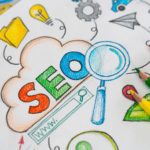To succeed in organic search nowadays, you must optimize for a variety of variables considered important by search engines – technical, on-page, and off-page.
We’ve seen a growing emphasis on off-page approaches – such as link building – and other technological features over the years.
However, the reality is that off-page SEO is ineffective unless you pay attention to the fundamentals — on-page SEO.
Effective SEO practitioners understand that on-page optimization should always take precedence.
Additionally, because the search landscape is continuously evolving, it is vital to have current knowledge of on-page SEO.
We’ll discuss what on-page SEO is, why it matters, and ten of the most critical on-page SEO concerns today in this piece.
What Is On-Page Search Engine Optimization (SEO)?
On-page SEO (alternatively referred to as on-site SEO) is the process of optimizing web pages in order to boost a website’s search engine ranks and generate organic traffic.
Along with creating relevant, high-quality content, on-page SEO entails optimizing your headlines, HTML elements (title, meta, and header), and images. Additionally, it entails ensuring that your website demonstrates a high level of competence, authority, and trustworthiness.
It considers a variety of factors on the page that, when combined, boost your website’s visibility in the search results.
Why Is On-Page SEO Critical?
On-page SEO is critical since it enables search engines to comprehend your website and its content and determine whether they are relevant to a searcher’s query.
As search engines get more sophisticated, search engine results pages place a greater emphasis on relevancy and semantics (SERPs).
With its variety of complex algorithms, Google is now far better at:
- Recognizing what users are really looking for when they enter a query.
- Delivering search results that are contextually relevant to the user’s purpose (informational, shopping, navigational).
Adapting to this change is critical, and you can do so by ensuring that your website and its content – both what users see on your webpages (i.e., text, images, video, or audio) and elements visible only to search engines (i.e., HTML tags, structured data) – are well-optimized according to current best practices.
Additionally, you cannot disregard on-page SEO merely because you have greater control over on-site aspects – in comparison to off-page SEO, which is comprised of external signals (i.e., backlinks).
If you invest time and effort in on-page methods, you will see an increase in traffic and a boost in your search visibility.
This article will bring you through the most critical on-page SEO aspects.
Concentrating on these ten areas will assist you in improving your content and authority – as well as your rankings, traffic, and conversions.
1. E-A-T
E-A-T, which stands for Expertise, Authoritativeness, and Trustworthiness, is the framework through which Google raters evaluate content providers, webpages, and entire websites.
Google has always emphasized the importance of high-quality content. It seeks to ensure that sites with high-quality content are rewarded with higher rankings and that sites with low-quality material are penalized with decreased visibility.
There is an unambiguous correlation between what Google judges to be high-quality content and what shows in search results.
Call it correlation or causation — whatever the case, E-A-T is influencing Google’s organic search results in some way. This means that E-A-T must be factored into your SEO approach.
2. Tag for the title
The title tag, an HTML tag included in the head section of each webpage, serves as an initial clue or context for the page’s topical subject matter.
It is prominently displayed in both the search engine results pages (where it is often utilized as a clickable link) and the browser window.
Because the title tag has a negligible effect on organic rankings, it is frequently neglected.
Having said that, missing, duplicate, or badly worded title tags can all have a detrimental impact on your SEO results, so be sure to optimize for this part.
3. Metadata
Meta descriptions have been a critical optimization element from the infancy of SEO.
Meta descriptions, or meta tags that describe the content of a page, are frequently displayed in the SERPs beneath the page’s title.
While Google insists that meta descriptions have no effect on rankings, anecdotal evidence suggests that the indirect benefits of stronger descriptions do.
Correctly optimizing the meta description can aid in the improvement of:
- Rate of click-through (CTR).
- Perception of the result’s quality.
All of these factors affect how your website is perceived.
4. Titles
Do you want the content on your website to rank well in search engines? Then begin drafting attention-grabbing headlines.
While creating a title for a blog post may seem trivial, a strong headline may be the difference between a click and an impression – which is why it’s critical to do it strategically.
Your headlines must pique users’ curiosity in order for them to click through and continue reading the rest of the content.
5. Tags in the Header
Header tags are HTML elements (H1-H6) that are used to differentiate headings and subheadings from other forms of text inside your content (e.g., paragraph text).
While header tags are no longer as vital to your site’s ranking as they once were, they still serve an important purpose – for both your users and your SEO.
They can have an indirect effect on your rankings in the following ways:
- Making it easier and more pleasurable for people to read your information.
- Providing search engines with keyword-rich context for your content.
6. Search Engine Optimization Copywriting
SEO writing is creating material that is optimized for both search engines and users.
There is a process to generating effective SEO content – and it goes beyond keyword research and filling in the blanks.
Producing content solely for the sake of it will not suffice. Bear in mind that you’re writing content for humans, which means it must be of high quality, significant, and relevant nature.
7. Cannibalization of keywords.
Is this true or false? The more pages you have that are optimized for a particular keyword, the higher you will rank for that keyword.
False!
Utilizing a single phrase across numerous pages can result in “keyword cannibalization,” which can have some negative repercussions for your SEO.
When many pages rank for the same keyword, you are effectively competing against yourself.
It is critical to discover and resolve keyword cannibalization on your website immediately.
8. Audit of Content
The majority of content providers are so preoccupied with developing new material that they neglect to audit their previous work. And this is incorrect.
Conducting an audit of your existing content is critical since it enables you to:
- Evaluate whether your current content is accomplishing its objectives and generating revenue.
- Determine whether the information contained in your article is still current or has become out of date (or even outdated).
- Determine the types of material that are most effective for you.
Audits of your content can significantly benefit your SEO strategy and should be conducted on a regular basis.
9. Image Enhancement
Adding graphics to your web pages is an effective approach to increase their attractiveness. However, not all photos are made equal — some may even cause your website to slow down.
Proper image optimization enables you to make the most of a priceless SEO asset.
Numerous benefits accrue from image optimization, including the following:
- Additional options for ranking (show up on Google Image Search).
- A more positive user experience.
- Increased website load speed.
Images should not be a secondary consideration. Ensure that you include images that support your content and that your titles and alt text are descriptive.
10. User Interaction
Enhancing the on-page SEO features of your website is only half the battle.
The other half is ensuring that users do not bounce – but instead remain to view your content, interact, and return for more.
Retaining engaged consumers is a significant undertaking in and of itself, but it is surely possible. Focus on elements such as site performance, user experience, and content optimization to boost user engagement.
You might like to read: How Can Meta Tags Influence SEO?




